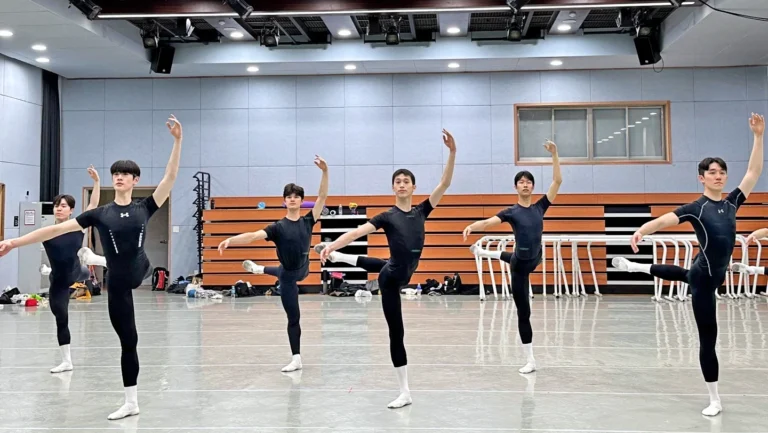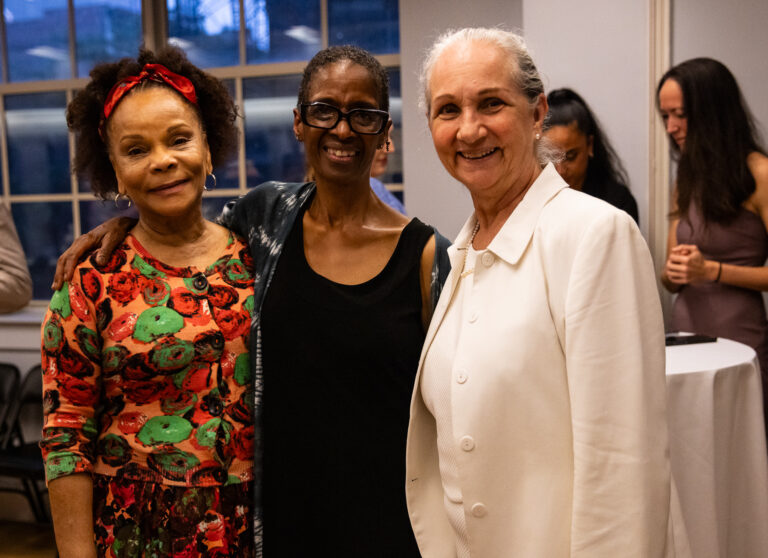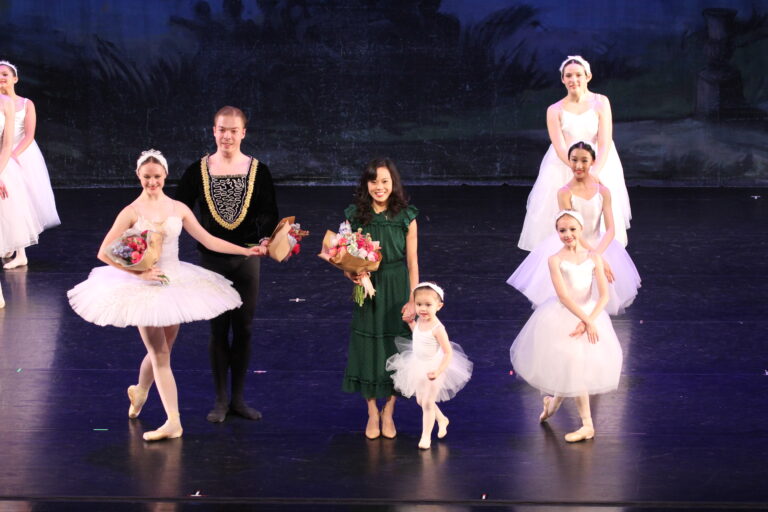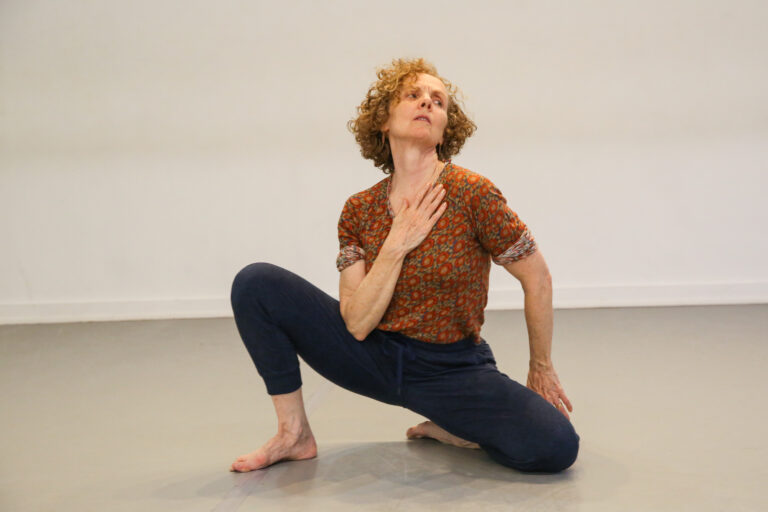
Look at the faculty roster at any ballroom-focused studio in the U.S. and you’ll more than likely see at least one teacher who hails from Ukraine.
The country, now embattled in an unprovoked war with Russia and a resulting humanitarian crisis, has a rich history of excellence in ballroom styles, and many Ukrainian dancers move to the U.S. for more lucrative teaching opportunities, says Evan Mountain, who owns several Fred Astaire dance studios in the Detroit, Michigan, area.
Mountain’s studios have three Ukrainian teachers on staff. When the war broke out, he says, he felt a responsibility to help. His studios launched Waltz for Ukraine, which offers a free waltz lesson to anyone who makes a donation to the cause. They’ve raised over $4,000 so far, and all funds will go directly to the instructors to help their families who are still in Ukraine or have recently left to restart their lives.

“We wanted to use the product that we have—which is dance—to help raise money for their families,” Mountain says. “But I also knew that if my teachers are dancing, they aren’t worrying as much. I thought, well, if they get even busier than they normally are with teaching, it gives them more of a reprieve.”
Mountain isn’t alone: Studios and dance organizations all over have rallied to help Ukrainian dancers, and Ukrainians in general, whether or not they have a direct connection to the crisis. At another Fred Astaire studio, in Richmond, Virginia, which is entirely staffed by Ukrainian teachers, a recent fundraiser—featuring a dance class, a practice party and a performance by the teachers to traditional Ukrainian music—sold 130 tickets and raised $32,000. Half of these funds will go directly to the instructors’ families in Ukraine, says the studio’s vice president Maggie Small, and the other half will go to United Help Ukraine.

For Dance With Me, which operates 14 ballroom studios throughout the U.S., the crisis is especially personal. The company’s founders, “Dancing with the Stars” alums (and brothers) Maks and Val Chmerkovskiy, were born in Odessa, Ukraine, and many other Dance With Me staff members and teachers are also Ukrainian. When Russia invaded, Maks happened to be in Kyiv filming a dance competition show. He documented his escape via social media and, after a short time home in Los Angeles, went to Poland to help with humanitarian efforts.
Dance With Me is doing what it can to help from afar, raising funds at recent competitions, part of which have gone to the efforts of the World Dance Competitors Commission, which is providing housing to Ukrainian dancers in Poland and sending them whatever supplies they need. Other funds raised will go towards Dance With Me’s efforts to relocate Ukrainian dancers to the U.S., providing them with housing, moving expenses and a teaching job, including a $5,000 signing bonus.
“My parents, Val and Maks’ parents, and many other people who work in our company took a huge risk leaving after the collapse of the Soviet Union,” says marketing director Alex Samusevich, who was born in Belarus and is part Ukrainian. “So we know how difficult that can be, and how scary that can be. We just want to make that transition easier for the dancers.” They are working with an immigration lawyer, but Samusevich acknowledges that the process may take longer than they’d like it to.
In addition to helping dancers specifically, Aleksandr Chmerkovskiy, Maks and Val’s father, has launched Baranova 27, a humanitarian fund sending food and other supplies directly to Ukraine. Named after the address where Maks and Val grew up in Odessa, the organization is taking monetary donations to fund shipping costs as well as donations of supplies via Amazon and in-person at temporary headquarters in Fort Lee, New Jersey, where hundreds of volunteers have gathered in recent weeks. Baranova 27 has already flown thousands of pounds of donations to Ukraine, with much more still to be shipped.

The Hromovytsia Ukrainian Dance Ensemble of Chicago, a company focused on traditional Ukrainian dances, has also been collecting supplies and funds, and has shipped over 42,000 pounds’ worth of donations. But several company members, including Nastia Lototska, who also teaches at the group’s sister school, the Ukrainian School of Dance, are bringing Ukrainian children relief that need not be shipped: dance classes, taught via Zoom. Lototska, who was born in Ternopil and moved to the U.S. at age 4, is working with a Ukrainian organization to hold the classes three times a week. She teaches the hopak, the national dance of Ukraine, and the hutsul, which comes from the country’s Carpathian Mountain region.

“The kids have incredible attitudes—they’re smiling and so engaged; they show us their pets,” she says. “They really try to learn how to dance, if they have a dance background or not. If you didn’t know the situation they’re in, you wouldn’t know what’s happening outside their windows.” Lototska now has regulars who attend every class, and has sometimes even had parents join in.
Most of Lototska’s family is still in Ukraine, and some are fighting in the war. Her experience teaching Ukrainian children has been a bright light in a terrifying time. “We went on this journey to maybe bring a few smiles to their faces,” she says. “They have done that in return by a million.”





